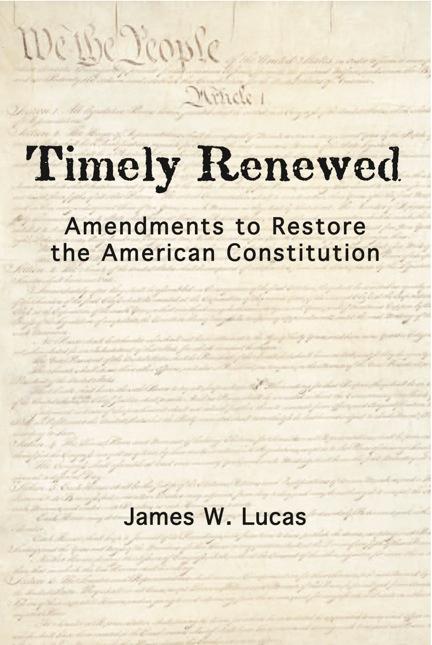Wisconsin Pro Publica and some regional newspapers have just published a lengthy report on a new push to amend the U. S. Constitution through the call of a convention under Article V. This Article, which governs how the Constitution is amended, provides that Congress should call a convention to propose amendments “on the Application of . . . → Read More: Can Congress be Compelled to Call a Constitutional Convention?
|
|||||
|
The DNC chairman’s misstatement was not an inadvertent error. In fact, it reflected an attitude toward the Constitution which is common in the modern Left. . . . → Read More: Why the Electoral College is Not in Tom Perez’ Constitution Our current winner-takes-all Electoral College system for electing our President is not what the Framers intended. However, direct popular election risks tearing apart our already divided nation. Fifty States, Not Six proposes a bipartisan solution which accommodates both Democrats and Republicans and assures that every citizen’s vote counts. . . . → Read More: Fifty States, Not Six – Reforming the Election Process Even with the most extensive Republican control of state legislatures in almost a century, constitutional conservatives still fall short of the 34 states needed to call an Article Five Convention of the States. Americans seeking to restore the constitutional balance between state and federal power would be well served to also promote reform of Article Five itself to eliminate the requirement that the states go through the archaic and unworkable mechanism of a convention in order to initiate amendments to the Constitution. . . . → Read More: Amending the Constitution to Constrain Federal Power: There Is An Alternative to a Doomed Convention of the States Retired Supreme Court Justice John Paul Stevens has written a book proposing six amendments to the Constitution. Whatever their substantive merits, these opinions are all very poorly drafted. They leave too much discretion in the hands of judges, and even can be reasonably read to defeat Stevens’ objectives in proposing them. . . . → Read More: Six (Poorly Drafted) Amendments Mark Levin has directed attention to the use of the amendment power to restore constitutional government. However, the use of a state-called convention to accomplish this is very problematic from a procedural point of view, let alone concerns for a “runaway” convention. The better approach is to first adopt Levin’s and others’ suggestion that we amend Article V to permit states to initiate amendments without having to go through a convention. . . . → Read More: A Convention To Implement the Liberty Amendments? By ignoring US and California state officials’ refusal to defend DOMA and Prop 8, the Supreme Court abetted an egregious increase in executive branch power and attack on the rule of law. Now executive branch officials no longer have to constitutionally repeal laws of which they disapprove in the legislature, they only need to fail to defend them when they are challenged in court. . . . → Read More: Refusal to Defend: The Abuse of Power Underlying the Gay Marriage Cases Rather than justifying a free-for-all of constiutional disobedience as recently advocated by Professor Louis Seidman, we should use the amendment process to update the Constitution if needed. And if amendment is too difficult, let’s reform it to allow constitutional change to proceed in a democratic and orderly manner. . . . → Read More: Let’s Not Give Up on the Constitution – Amendment Is a Better Solution The Gay Marriage Cases Are Not About Gay Marriage: The Issue Is Survival of Government by The PeopleThe gay marriage cases before the Supreme Court represent a classic example of judges twisting constitutional language to impose their personal policy views on the nation. There is no basis in any constitutional language for forcing gay marriage on the nation, regardless of its possible merits as social policy. If these merits are so persuasive that gay marriage belongs in the Constitution, the solution is not the anti-democratic process of forcing it on the nation through judicial dictate. The solution is the democratic process of amendment. If amendment is too difficult, let us preserve democratic rule by modest reforms of the amendment process such as the Amendment Amendment, not by continuing our current system of judicial imperialism. . . . → Read More: The Gay Marriage Cases Are Not About Gay Marriage: The Issue Is Survival of Government by The People |
|||||
|
Copyright © 2026 Timely Renewed - All Rights Reserved |
|||||



The Missing Half of Originalism
By framing the fundamental issue as judicial amendment vs. democratic amendment, originalists can make clear that they are defending democratic government, not the dead hand of history as portrayed so often by their opponents. However, unlike regular laws, which can be readily amended by current legislatures, the Constitution can only be democratically changed by the lugubrious procedures of Article V. Therefore, originalists need to actively advocate reform of Article V. . . . → Read More: The Missing Half of Originalism